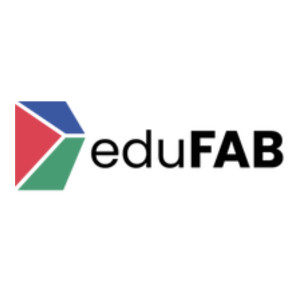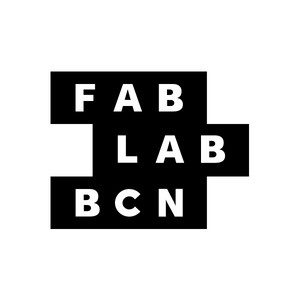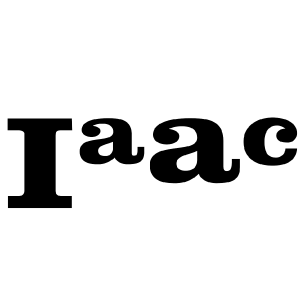

Fab Learning Academy
The Fab Learning Academy (FLA) is a distributed educational program that globally certifies educators to teach with digital fabrication tools and technologies in formal classrooms.
Degree
Fab Learning Academy Diploma – Distributed
Course Length
20 weeks, starting in September 2024
5 hours per week
Price
3,500$
Where?
Fab Lab Barcelona — IAAC
Language
English
Applications Deadline
TBD
Overview
As schools add digital makerspaces, the need for comprehensive training for teachers and other educators to unlock the potential of these technologies increases. Teachers often are left to seek out their own training with a new technology, and many of these training programs are designed to teach only the operation and use of the equipment without consideration of the unique circumstances teachers face. Fab Learning Academy combines technology with pedagogy and integration strategies so that teachers are better prepared to implement digital makerspaces into their classrooms. This combination of pedagogy and technology knowledge is combined with hands-on project work and in-class interventions (or assignments) which require teachers to embed this technology into their practice. The course is designed to create a professional learning community both at the local and global level so that teachers can learn from others and make connections which will help them implement at the classroom level.
The Fab Learning Academy (FLA) is a distributed educational program that globally certifies educators to teach with digital fabrication tools and technologies in formal classrooms. The program is a specialized course through Academany, the “Academy of (Almost) Everything”. FLA’s team of instructors partners with localized Fab Labs to reach educators in those areas for hands-on projects and in-class interventions synchronous with the larger global cohort. Project documentation, lesson plans, and class interventions will be assessed by the global faculty for teachers to earn their certification.
Key Features of the FLA Program
- Global Certification for Educators: FLA’s primary objective is to globally certify educators in the art of teaching with digital fabrication tools. This certification program ensures that educators are well-prepared to integrate cutting-edge technology into their teaching methodologies.
- Collaboration with Localized Fab Labs: FLA collaborates with localized Fab Labs situated in various regions around the world. These partnerships enable the program to offer hands-on projects and in-class interventions to educators within those areas. This localized approach ensures that educators have access to resources and support in their communities.
- Synchronous Learning with a Global Cohort: FLA’s approach to education is highly collaborative. Educators participating in the program engage in synchronous learning experiences with a larger global cohort. This global community fosters a sense of connection, shared learning, and exchange of ideas among participants from diverse backgrounds and regions.
- Assessment by Global Faculty: To earn their certification, educators are required to complete field activities documentation, develop lesson plans, and execute interventions. These submissions are assessed by a local and global faculty of experts. This assessment ensures that educators have demonstrated a high level of proficiency and understanding in using digital fabrication tools in an educational context.
Structure
The curriculum of Fab Learning Academy is organized around four themed modules, each with a duration of 3 to 6 weeks. Collectively, the program spans approximately 20 weeks, ensuring a comprehensive and in-depth learning experience for educators.
The structured modules provide a clear roadmap for participants, guiding them through various aspects of technology integration and pedagogical strategies. This organized approach ensures that educators can gradually build their skills and knowledge in a systematic manner, ultimately enhancing their confidence and effectiveness in using digital makerspaces in educational settings.
Summary
- 4 Modules
- 10 Weeks / Tasks (Masterclasses + Global reviews)
- 4 Field Activities (8 weeks – Studio review + Maker project base learning)
- 4 Recitations (Real world talks)
- Extended timeline with 4 themes
- 1 large intervention with each theme
- 5 hours per week commitment
- Pedagogy and integration topics
- Local evaluation of small tasks and global evaluation of interventions
- Centralized lectures – distributed among the Educational hubs
Modules
The course will be divided into 4 themed units, and each unit will include 4-5 weeks.
Weekly Content and Tasks
Each week will consist of three parts with the workload not exceeding 6 hours in a given week:
- Centralized global live discussion/presentation (90 minutes) – synchronous globally
- Lab Task to be completed in the local lab – individual or group (120 minutes) – synchronous locally.
- Real world talks – Inspirational
Field Activity
At the conclusion of each unit, teachers will complete a classroom intervention required to earn a passing grade on the Unit. Though each intervention will be different, each will involve teaching practices and could take between 6 and 10 hours of development, intervention, and documentation.
Nodes
Fab Learning Academy is a distributed educational program; students are gathered in Educational Hubs (Nodes), in local workgroups with peers, mentors, and machines. Everyone is then connected globally in an online campus with content sharing and interactive video classes.
Fab Lab Barcelona is an Educational hub and Founder of this program, cementing years of trajectory working in the field of K-12 Education and its intersection with the maker and fab culture.
Student Profile
We welcome Teachers, Educators in formal and informal settings, and all parties interested in the intersection of Classroom and Makerspace.
Partners
Fab Foundation serves as an organizational platform for the worldwide network of Fab Labs, initiated by the outreach program of the Center for Bits and Atoms (CBA) at the Massachusetts Institute of Technology (MIT). Fab Labs promote the dissemination of personal fabrication, through the use of digital fabrication equipment, and the development of international projects of education and research. Within the Educational scope, Fab Foundation promotes Fab Learning Academy as part of the Academany platform.
Fab Lab Oulu is one of few Super Fab Labs in the world where anyone can design, quick-prototype, and fabricate their products and hardware. Part of the University of Oulu, Finland, an international science university that creates new knowledge, well-being and innovations for the future through research and education.
eduFAB is dedicated to curating and sharing resources to catalyze the potential of digital fabrication makerspaces for authentic student learning in K-12. The eduFAB Network consists of professional educators who can mentor, answer questions, and consult on strategic projects, curriculum development, digital makerspace integration, and STEM, STEAM, and other innovative educational initiatives.
Fab Lab Barcelona, part of IAAC, is a think and make, a laboratory for research, services and education, driving and developing investigations into citizen-centered technology, digital fabrication, productive citizens and emergent futures. We work in strategic areas of expertise that drive our programs and research: Civic Ecology, Distributed Design, Emergent Futures, Future Learning, Materials and Textiles, Productive Cities and Sense Making. Founded in 2007 it was the fourth Fab Lab to join the Fab Lab Network initiated by MIT’s Center for Bits and Atoms (CBA) and the first one in the European Union.
Institute for Advanced Architecture of Catalonia – IAAC
IAAC is a center for research, education, production and outreach, with the mission of envisioning the future habitat of our society and building it in the present. IAAC follows the digital revolution at all scales (from bits to geography, from micro-controllers to cities, from materials to the territory) to expand the boundaries of architecture and design and meet the challenges faced by humanity. It is an open, independent, and radical non-profit foundation, with 20 years of activity; inspired by the values of Barcelona, the capital of architecture and design, where urbanism was invented and where a local high-quality and innovation-oriented research is connected to an international network of excellence in technology, architecture, and society fields.



